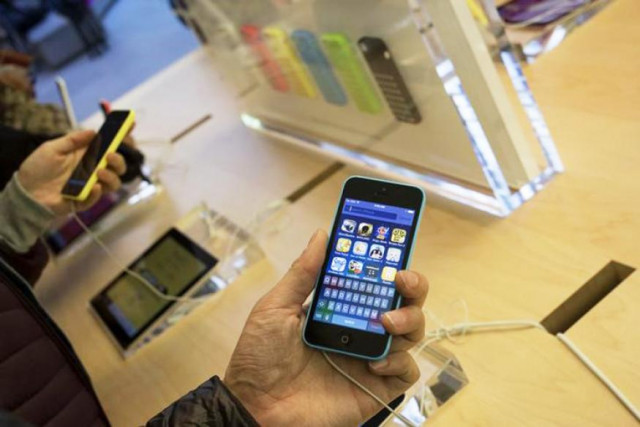Hacker released tools FBI used to crack San Bernardino attacker’s iPhone online
Cellebrite reportedly helped FBI crack the iPhone 5c owned by Syed Farook, one of the San Bernardino shooters

Cellebrite reportedly helped FBI get into the iPhone of one of the San Bernardino shooters. PHOTO:
Last year, the FBI sought Apple assistance in hacking the iPhone 5c owned by Syed Farook, a US citizen, who gunned down 14 people with his Pakistani wife Tashfeen Malik in the California city on December 2, 2015. However, Apple refused to comply with orders with CEO Tim Cook saying that creating such “backdoor” would be “bad for America”.
“The protection of people’s data is incredibly important, and so the trade-off here is we know that doing this could expose people to incredible vulnerabilities,” the Apple CEO said.
Apple rejects 'dangerous' order to hack US shooter's iPhone
Following Apple’s refusal, the FBI reportedly worked with an Israeli mobile security firm Cellebrite and was able to access the phone and what was stored on the device.
In January, a hacker was able to break into Cellebrite’s servers and stole around 900GB of data. The data, some of which was dumped online as a warning to FBI, suggests that Cellebrite had sold its phone cracking technology to oppressive regimes such as Turkey, United Arab Emirates and Russia.
FBI paid more than $1.3 million to break into San Bernardino iPhone
The hacker claimed to have extracted the Cellebrite's Universal Forensic Extraction Device (UFED), a small, laptop-sized device capable of pulling SMS messages, emails, and more from thousands of different mobile phone models including older iPhones like the 5c as well as Android and Blackberry devices.
However, it is not clear when any of this code was used in the UFED. Many of the directory names start with "ufed" followed by a different type of phone, such as BlackBerry or Samsung.
New leak shows Pakistani ISPs may have been hacked by the NSA
Talking to Motherboard anonymously, the hacker said, “The debate around backdoors is not going to go away, rather, it is almost certainly going to get more intense as we lurch towards a more authoritarian society."
"It's important to demonstrate that when you create these tools, they will make it out. History should make that clear," they continued.
This article originally appeared on Motherboard


















COMMENTS
Comments are moderated and generally will be posted if they are on-topic and not abusive.
For more information, please see our Comments FAQ